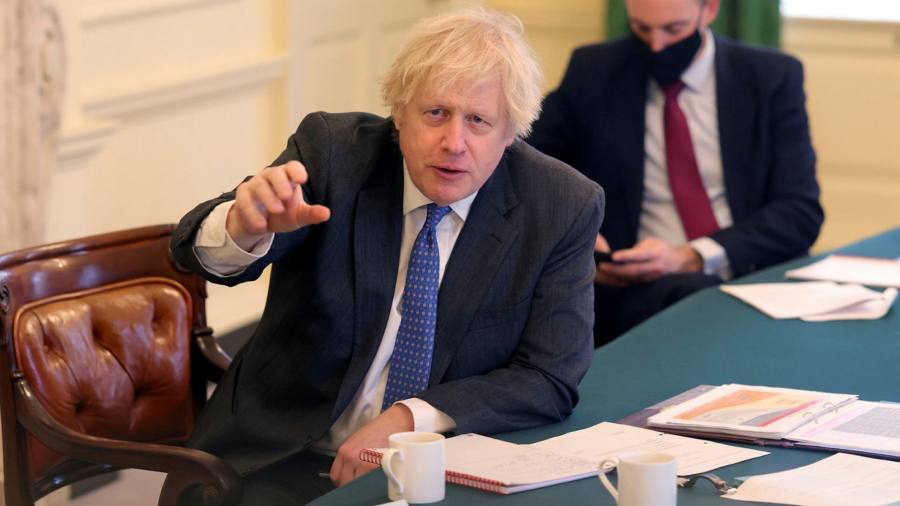[ad_1]
The British government was accused on Tuesday by Conservative backbenchers of using “arcane procedural games†to avoid a rebellion on its trade bill, as pressure grew to toughen its stance on China through the legislation.
Backbenchers had expected to vote on an amendment passed by the Lords last week allowing the High Court to determine whether a country had committed genocide.
However, ministers used a parliamentary procedure to ensure that if parliamentarians wanted to back the new measure they would also have to support a separate Labour-led amendment.
The government had also encouraged backbenchers to support a compromise amendment proposed by Sir Bob Neill, chair of the justice select committee, allowing MPs on the Commons foreign affairs committee or peers on the Lords’ international relations and defence committee to assess whether a country had committed genocide.
The compromise amendment was approved by just 318 votes to 303 on Tuesday evening. There were 31 rebels including ex-Tory leader Iain Duncan Smith, former Brexit secretary David Davis, chair of the liaison committee Bernard Jenkin and Nusrat Ghani. Rebel MPs have signalled they will maintain pressure on the government over this issue.
The decision to block MPs from voting on individual amendments was strongly condemned by senior backbenchers. Mr Duncan Smith said, “The government has run out of arguments and is now using arcane procedural games which demean our democracy and the House of Commons.â€
Responding to criticisms ahead of the vote, the prime minister’s spokesperson said: “I would point to the fact that it is common practice during ping pong on bills for some Lords amendments to be packaged together where they cover similar issues.â€
Boris Johnson narrowly avoided a defeat on the bill in January after MPs voted 319 to 308 to cancel the proposals that would have granted UK courts greater power on the matter. The issue was brought back into the limelight last week when amendments put forward by crossbench peer David Alton passed in the House of Lords by 359 to 188 votes.
Ministers had argued that the amendment could “embroil the courts in the formulation of trade policy†and undermine the separation of powers.Â
The parliamentary dispute follows months of tension surrounding the government’s response to ongoing claims of human rights abuses against Muslim Uighurs in Xinjiang in China.
In January, foreign secretary Dominic Raab announced that British businesses that failed to ensure their supply chains were free of slave labour could face financial penalties, arguing that the UK now had a “moral duty†to respond to “far-reaching†evidence of human rights abuses taking place in Xinjiang. He also said the government would encourage businesses to conduct appropriate “due diligence†in assessing their supply chains.
However, Andrew Opie, director of food and sustainability at the British Retail Consortium, told MPs on the foreign affairs select committee on Tuesday that companies needed greater clarity on “what good due diligence looks likeâ€.
Peter McAllister, executive director at the Ethical Trading Initiative, also warned that giving businesses guidance might not be enough to tackle the problem.
“Guidance is suitable for those willing to do something but not enough for those who are willing to take a back seat or to not lift up the stone and see what is involved in their supply chainsâ€, he said. “In these sorts of situations something more demanding than guidance would be a good way of levelling up the playing field.â€Â
[ad_2]
Source link





